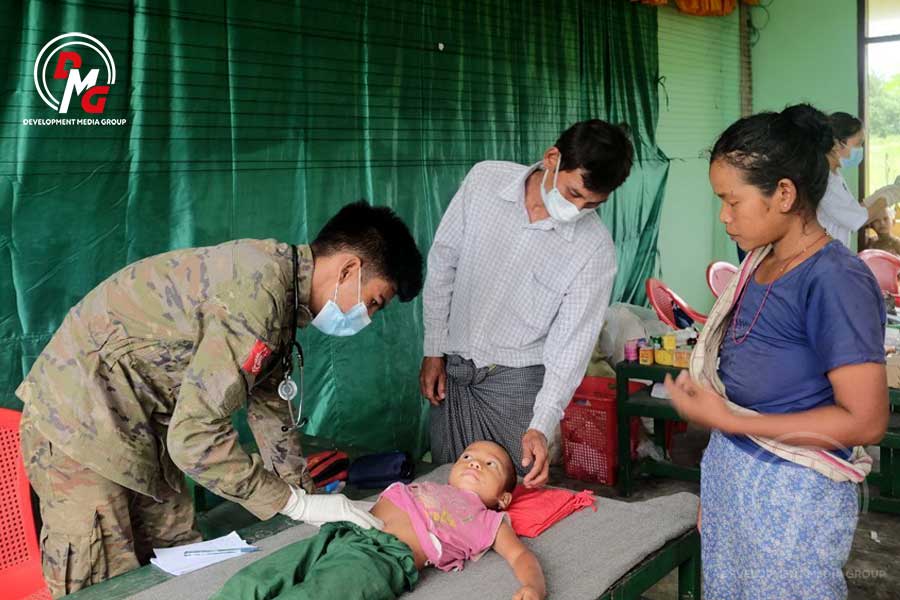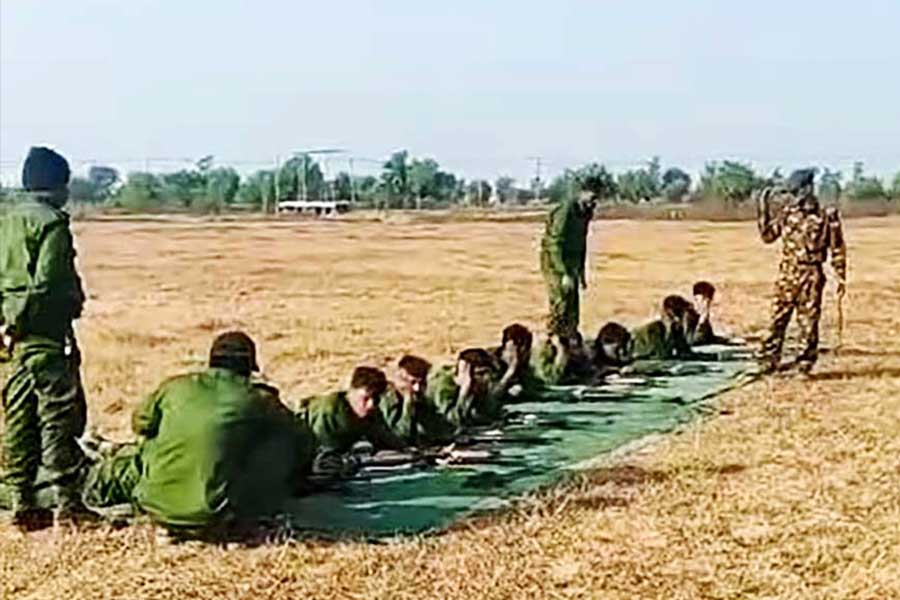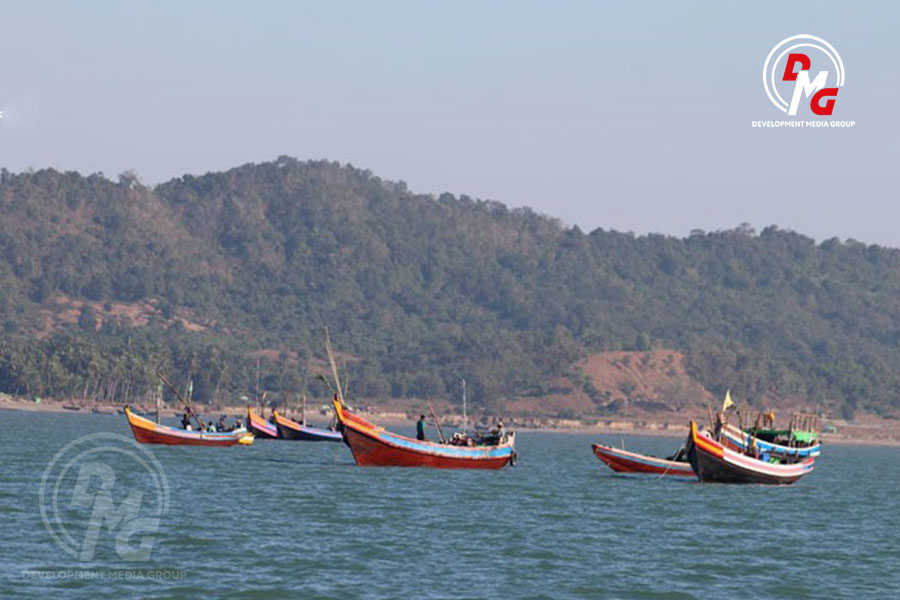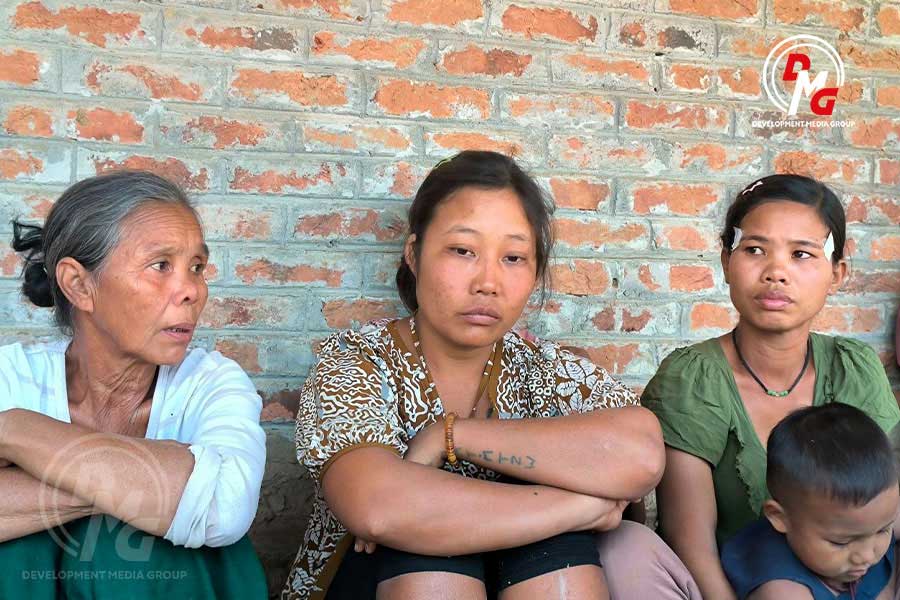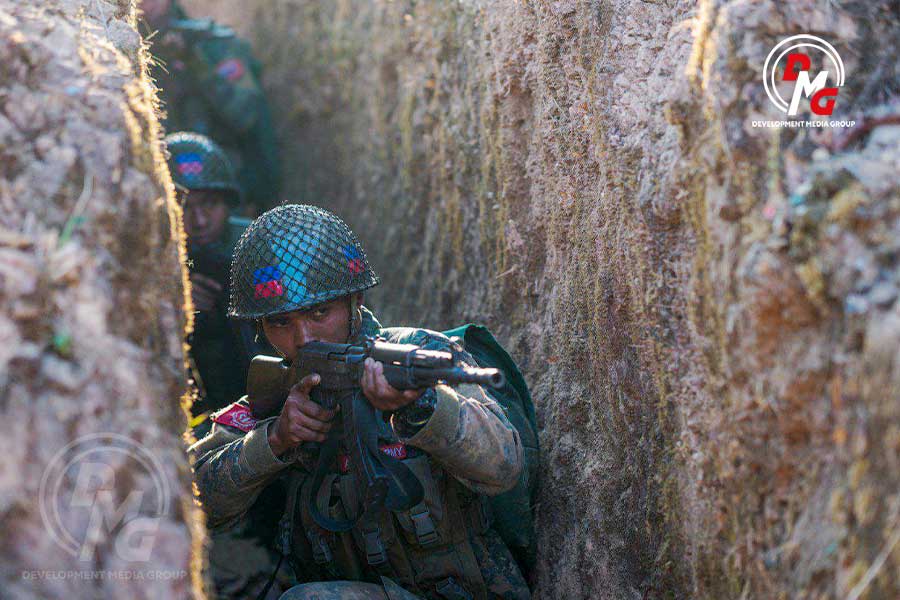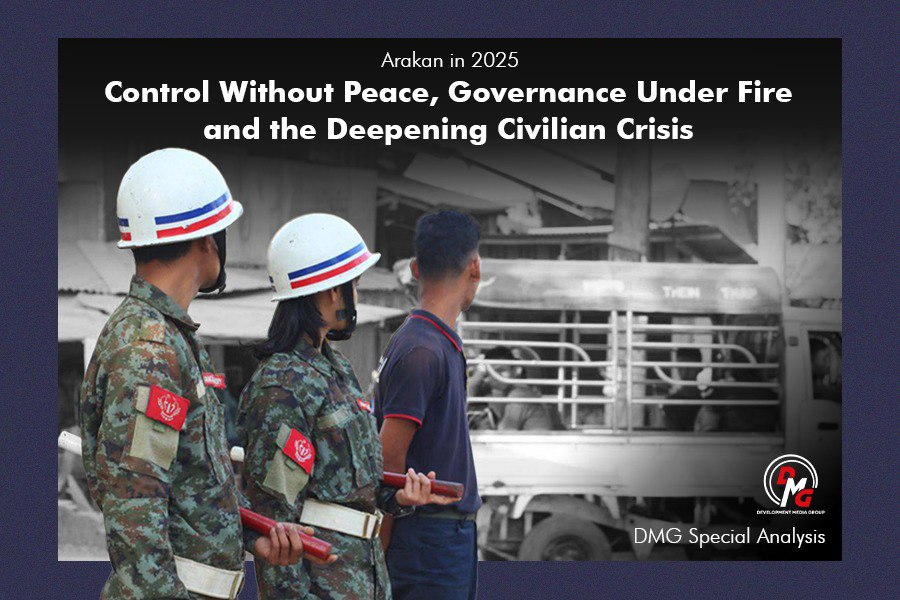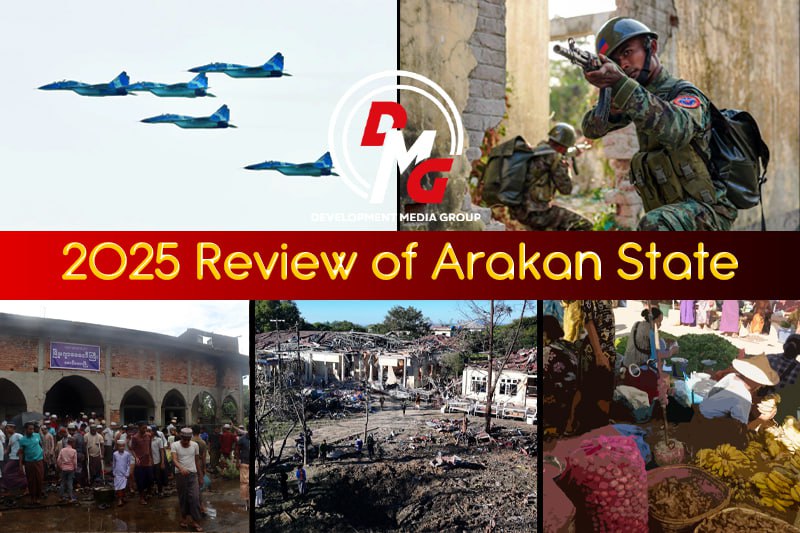- Children in Arakan State face rising cases of pneumonia and flu
- Muslim militiamen flee junta camps in Sittwe amid oppression, discrimination
- Junta navy activities halt fishing in Thandwe
- Junta airstrike kills 21 POWs, family members at Kyauktaw detention centre
- Arakan Army seeks to expand territorial control in Sittwe
Educating IDPs amid COVID-19 and war
“They are war-displaced people, so they have trauma. They are not interested in learning too much,” said a primary school teacher from Rathedaung town who has taught IDP students.
05 Jun 2020
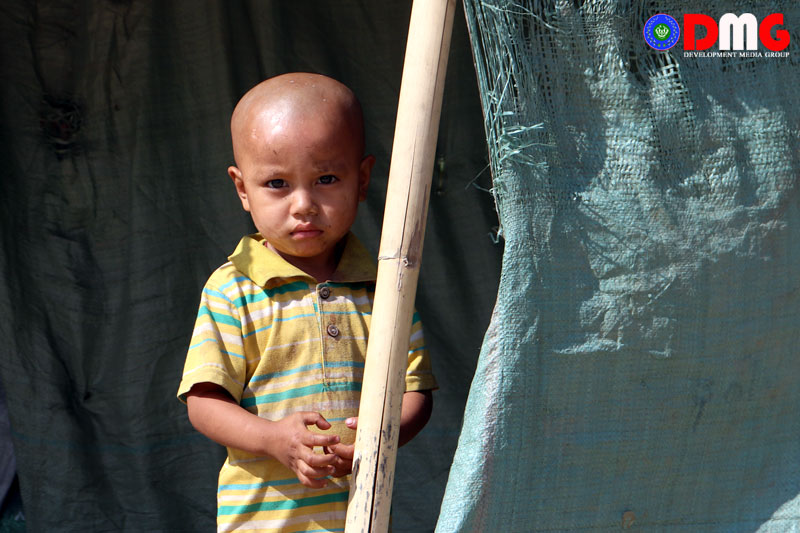
By Khin Tharaphy Oo | DMG
Armed conflict between the Tatmadaw and the Arakan Army has plagued Arakan State since late 2018, resulting in more than 164,000 internally displaced people (IDPs), according to the Rakhine Ethnics Congress (REC) on April 30.
About 30% of the IDPs are students, the REC estimates, and in ways large and small they are losing their right to pursue their education.
Some IDP camps have arranged schooling for them at nearby schools and monasteries, but it is not easy for children who have fled their homes to sit for class and concentrate on learning amid the sounds of gunfire and the daily difficulties of displaced living. Some IDP students have lost parents and relatives to the war, which has resulted in hundreds of civilian deaths. Others have had family members injured or arrested.
“They are war-displaced people, so they have trauma. They are not interested in learning too much,” said a primary school teacher from Rathedaung town who has taught IDP students.
Into this challenging environment, the COVID-19 pandemic has added another layer of complexity and struggle. There have been more than 230 confirmed cases of COVID-19 nationwide, six deaths from the virus, and two cases reported in Arakan State.
With the Myanmar government having cut off mobile internet access in several war-affected parts of Arakan State, most IDPs lack quality information and real-time updates about the coronavirus outbreak.
The academic year is among the many matters disrupted by the pandemic.
During a video conference on May 12, State Counsellor Daw Aung San Suu Kyi said schools would need to reopen — with social distancing practices in place — even if the virus is not yet “controlled” by the time classes resume. As things stand currently, high schools will return to the classroom on July 21, followed by middle and primary schools.
But with planned social distancing measures putting space in classrooms at a premium, IDP children are by no means assured a chance to resume their education.
Meanwhile, some IDP children currently consider school buildings their temporary homes but will soon be pushed out to make way for the resumption of classes.
Arakan State lawmaker U Maung Maung, who has met with the Kyauktaw Township administrator to discuss preparations for the coming academic year, said: “The township administrator said school buildings where IDPs and people under quarantine are staying shall be handed over to the relevant education department by June 15 after cleansing and disinfecting. But the instruction does not mention how it has arranged for [the relocation of] IDPs. It is worrying for IDPs.”
The increased exposure to others — and the attendant potential to accelerate coronavirus spread — is another concern for all returning students and their families; but more so for IDPs due to the often cramped and unhygienic conditions of their displaced communities, whether “home” is a tarpaulin tent in a dilapidated IDP camp or the crowded floorspace of a monastery.
Primary school students can access education at the IDP camps they are living in, but middle and high school students from the camps will have to go to school in the nearest towns and villages.
“Some parents will not send their children [to school] at the moment. Some parents can afford required [COVID-19] preventive items, but IDP students would need drinking water and masks,” said a primary school teacher from Rathedaung Township.
The father of Mg Kyaw Naing, an IDP student in Rathedaung town who will attend Grade 5 in the upcoming academic year, said he could not afford to buy preventive items for his son to use at school.
“I am worried about the risk of the disease being transmitted to my son because I cannot buy masks for him,” he said.
Some IDPs cannot send their children to school because of financial difficulties. There are many students who cannot attend school regularly because of their family’s financial condition, said Daw Khaing Than Wai, a volunteer teacher at Myadasaung IDP camp in the ancient city of Mrauk-U.
“Some students asked me if they could be absent from school because they had to babysit while their parents were working somewhere. Some students came to school regularly at first, then they dropped out to work for their family,” she said.
Amid an ongoing war that has killed or wounded hundreds of civilians — including numerous students — educational pursuits are a particular challenge for displaced populations. With this in mind, trauma-informed care should be a focus of those responsible for the education of children in Arakan State, this difficult year especially.




